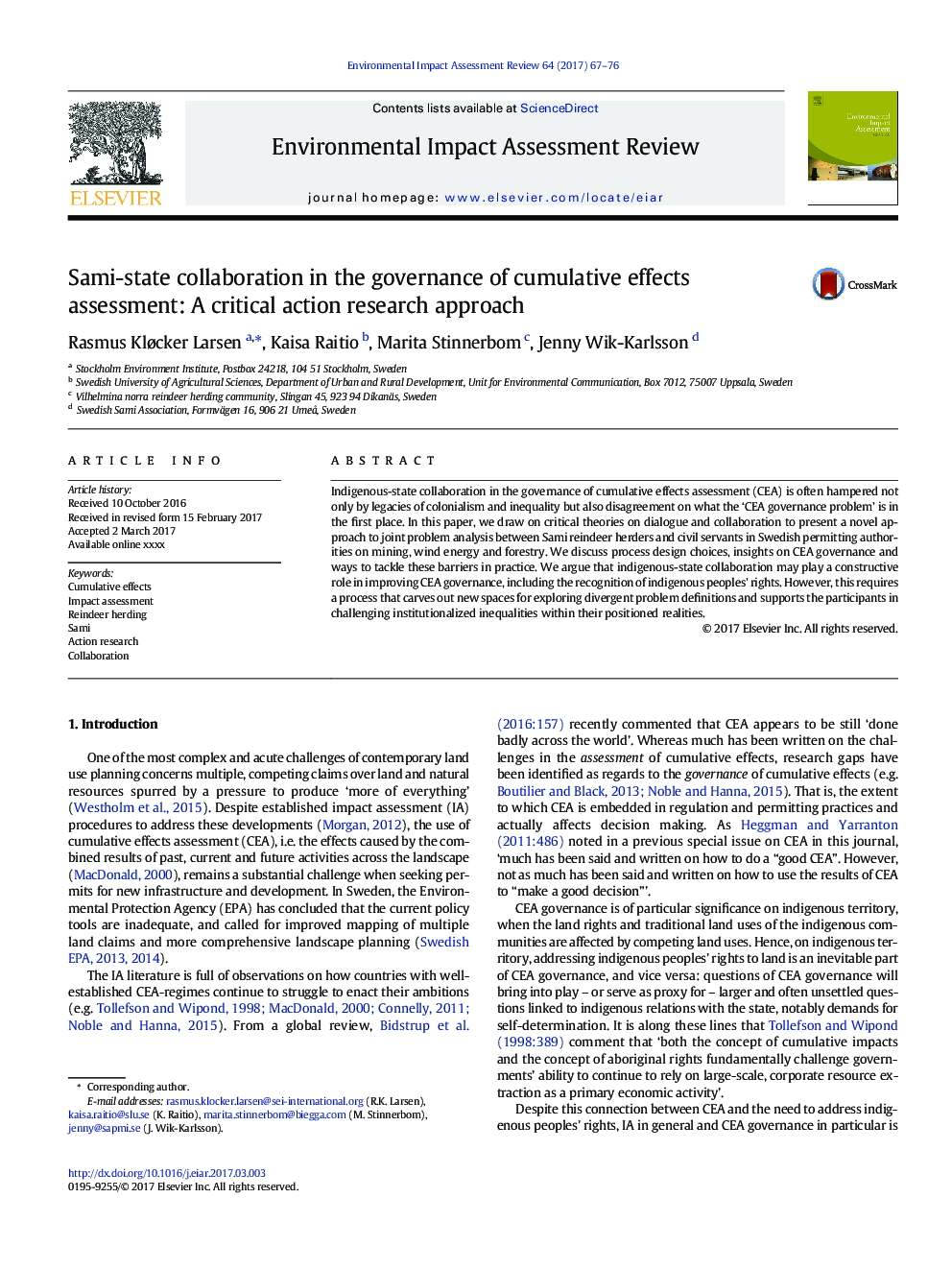| Article ID | Journal | Published Year | Pages | File Type |
|---|---|---|---|---|
| 5115649 | Environmental Impact Assessment Review | 2017 | 10 Pages |
Abstract
Indigenous-state collaboration in the governance of cumulative effects assessment (CEA) is often hampered not only by legacies of colonialism and inequality but also disagreement on what the 'CEA governance problem' is in the first place. In this paper, we draw on critical theories on dialogue and collaboration to present a novel approach to joint problem analysis between Sami reindeer herders and civil servants in Swedish permitting authorities on mining, wind energy and forestry. We discuss process design choices, insights on CEA governance and ways to tackle these barriers in practice. We argue that indigenous-state collaboration may play a constructive role in improving CEA governance, including the recognition of indigenous peoples' rights. However, this requires a process that carves out new spaces for exploring divergent problem definitions and supports the participants in challenging institutionalized inequalities within their positioned realities.
Related Topics
Physical Sciences and Engineering
Energy
Renewable Energy, Sustainability and the Environment
Authors
Rasmus Kløcker Larsen, Kaisa Raitio, Marita Stinnerbom, Jenny Wik-Karlsson,
